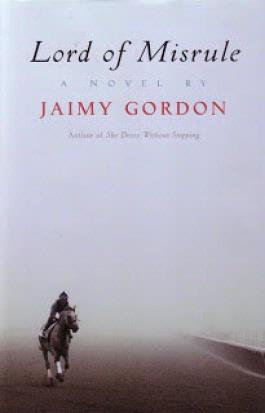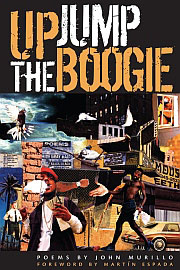Horseracing, like hip-hop, is a culture, entirely of its own. Each is formed on the edges of society, producing a rhythm balanced by struggle and persistence. And each, uncovered, reveals an explosion of unexpected power and potential.
These are two largely unexplored, mysterious, enriched worlds. But as an outsider, to tap into either and retrieve honest results is practically impossible.
Although perhaps you don’t want to. The desire is a very particular and a fairly unusual one. These realms can be grubby, uncomfortable, and harsh. That unpleasantness however, when left to the right people, is its very beauty.
 In their work, Jaimy Gordon and John Murillo expose their unconventional stories. Gordon explored a variety of characters behind the scenes of horseracing in her novel Lord of Misrule, winner of the 2010 National Book Award. Murillo takes advantage of his experience in hip-hop to incorporate a beat and rhythm into his poetry, while addressing the lifestyle that accompanies these very experiences. The subject matter, without a doubt, is vastly different; however, the underlying themes don’t vary quite so greatly.
In their work, Jaimy Gordon and John Murillo expose their unconventional stories. Gordon explored a variety of characters behind the scenes of horseracing in her novel Lord of Misrule, winner of the 2010 National Book Award. Murillo takes advantage of his experience in hip-hop to incorporate a beat and rhythm into his poetry, while addressing the lifestyle that accompanies these very experiences. The subject matter, without a doubt, is vastly different; however, the underlying themes don’t vary quite so greatly.
Gordon does not fear confronting her readers with the unfamiliar. She plunges into the world of her story from the first word, immediately introducing her characters as flawed, rundown, and driven beings. Readers surface emotionally tangled, and wholeheartedly convinced. Gordon writes with such blatant, authentic knowledge that her readers can live the story as if it were real life.
“He wasn’t quite right in the soul, really. There was that missing twin he talked about all the time—his mother, Alberta, a waitress in Yonkers who rarely made sense, swore she’d been carrying twins, but one had got lost in the womb, she said, and for once Tommy believed her. He had the notion he’d swallowed his twin up himself, her he said, swallowed her up, big fish little fish, before he knew any better. Anyway there was a kind of spinning emptiness in him where things like sensible fear should be, a living hollow where light was dark.” —from Lord of Misrule
Murillo uses his poetry to tell the stories of reality, sugarcoating nothing. Each of his poems reveals a glimpse  into the lives of his characters, and tangibly and comprehensively captures the essence of the setting. Murillo, master of variety, does this through an assortment of methods. His poetic form varies from prose poems to more traditional configurations. He alternates from English to Spanish, from high-level vocabulary to street slang. Some poems begin by stating the time and place, while others drop contextual hints. Murillo continually surprises his readers as he exposes them to the lives of crooks, artists, prostitutes, musicians, and more.
into the lives of his characters, and tangibly and comprehensively captures the essence of the setting. Murillo, master of variety, does this through an assortment of methods. His poetic form varies from prose poems to more traditional configurations. He alternates from English to Spanish, from high-level vocabulary to street slang. Some poems begin by stating the time and place, while others drop contextual hints. Murillo continually surprises his readers as he exposes them to the lives of crooks, artists, prostitutes, musicians, and more.
A street sweeper rounds
the corner, headlights
stretching a mans silhouette
across the cool brick
of a brownstone. A window
rattles, creaks, lifts open
from his rib, and a woman
steps through, pushes
off the ledge. Doesn’t flail,
doesn’t scream, or scratch
at passing brick. Mid-flight,
she lies flat, spreads her
swollen shadow onto
a fire hydrant. She is sure
as gravity. The man
crossing the street, all rib
and open eye, clutches
his Koran. Read in prison
how pregnant women
would dive from slave ships.
Thought then, and believes
Now more than ever: this is
the one true act.
–“Sherman Ave. Love Poem” from Up Jump the Boogie
Gordon and Murillo have managed to accomplish the ultimate writer’s goal. They’ve each taken that one, inexplicable, unshakable interest of theirs, that piece of themselves that fights to be exposed and explored, and sparked the reader’s curiosity with it, allowing it to drive their respective works. And while Gordon and Murillo work their magic, the reader is able to escape into and become immersed in a new, culturally flourishing world. These two writers bring new insight into old, undiscovered realities.
On Saturday, March 30th at 8 pm, Gordon and Murillo, both past Fellows of the Fine Arts Work Center in Provincetown, will return to the Work Center to read from their books. This event is free and open ot the public. We welcome all to come and experience these readings of exhilerating, honest, original work.


